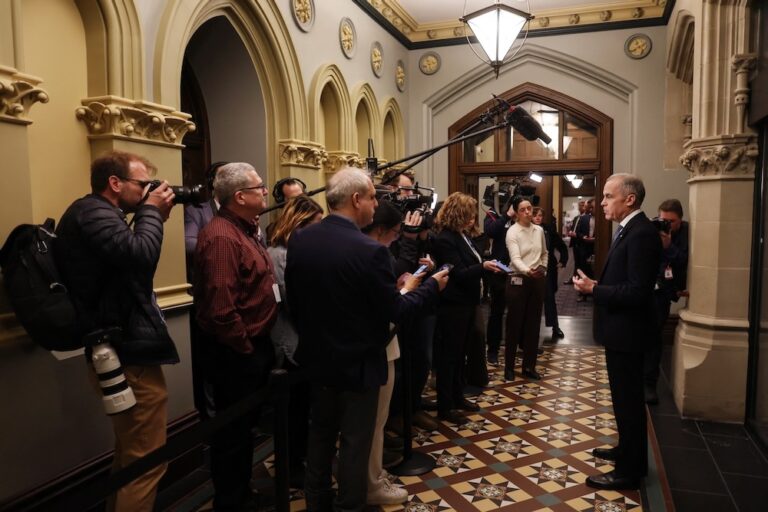CJFE is concerned that the Canadian Security Intelligence Service (CSIS) has backtracked on its promise to reveal to a Senate committee the agency’s history of spying on Canadian journalists and media workers.
This statement was originally published on cjfe.org on 15 December 2016.
CJFE is concerned that the Canadian Security Intelligence Service (CSIS) has backtracked on its promise to reveal to a Senate committee the agency’s history of spying on Canadian journalists and media workers. We call on CSIS to be fully transparent with Canadians about surveillance activities that relate to sensitive public interest sectors like journalism.
During the November 28, 2016 meeting of the Standing Senate Committee on National Security and Defence, Senator Claude Carignan, the Leader of the Opposition in the Senate of Canada, asked CSIS officials to ”confirm that no journalists were put under surveillance in the past.” The following dialogue ensued:
Brian Rumig, Assistant Director of Operations at CSIS: I’m going to guess, because I don’t have that information privy to me at the moment, that in the past, in the course of 30 years of this service being in existence, yes, there might have been journalists who because of their activity in support of threats to the security of Canada might have been investigated by us. Currently, I don’t know those numbers, and I don’t know the context.
Senator Carignan: Would you be able to commit to providing us with that information?
Mr. Rumig: Most certainly.
Now it is reported that CSIS will break this unequivocal promise to provide basic information about its activities, saying “we regret that we cannot confirm whether journalists have been the subject of any CSIS investigation.”
This is a blow to basic democratic accountability, and a demonstration by CSIS of sublime indifference towards one of the few organs of the government mandated to examine and report on Canada’s opaque national security system. Especially in the wake of a scathing ruling from a Federal Court that CSIS breached its duty of candour in failing to reveal the existence of a secret metadata program, it further undermines public trust and confidence in the Service.
Of particular concern is CSIS’s assertion that “Any individual engaged in threat-related activities may be subject to this kind of lawful investigation, irrespective of their profession.” The definition of a ‘threat to the security of Canada’ was significantly expanded to include the criminalization of various forms of expression under the Anti-terrorism Act, 2015 (formerly Bill C-51), and we fear CSIS activities in targeting the press may have expanded as well.
CJFE calls on the Ministry for Public Safety and CSIS to immediately and truthfully address the calls for transparency on the scope of its surveillance activities of Canadian journalists and confirm whether any journalists have been, or are currently, the subject of investigations. We believe this information to be in the public interest while posing no operational threats to CSIS.
The public interest value of this information is highlighted by the recent case of VICE News journalist Ben Makuch, who is engaged in court actions against the Royal Canadian Mounted Police (RCMP) to set a precedent on the confidentiality of journalistic sources. Agencies such as CSIS using Canadian journalists as arms of their investigations greatly undermines press freedom and acts as a hindrance for sources to come forward in important matters of public interest.
CJFE also calls on the Government of Canada to support Bill S-231, a private member’s bill originating Senator Carignan. This bill creates strong legal protections for investigations of journalists and, more specifically, rules governing investigations into journalistic sources.
The protection of journalism as a profession and the protection of press freedom through shielding journalistic sources are of paramount importance for the defence of democratic values.
This letter was sent to Honourable Ralph Goodale, Minister for Public Safety and Emergency Preparedness; and Mr. Michel Coulombe, Director, Canadian Security and Intelligence Services


